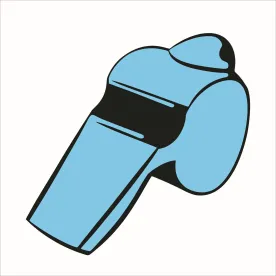Third Circuit Holds Statute of Limitations and Administrative Filing Requirements in SOX Retaliation Statute Are Not Jurisdictional
On January 4, 2023, the Third Circuit affirmed dismissal of a former employee’s SOX retaliation claim. Jaludi v. Citigroup & Co., 57 F.4th 148 (3d Cir. 2023). Plaintiff sued his former employer, Citigroup, alleging that because he reported misconduct, he was demoted, transferred, and fired, then blacklisted from the financial industry. After several years of litigation, the district court dismissed Plaintiff’s case for failure to state a claim because his administrative complaint was not filed within 180 days of the misconduct, as required by SOX, but rather was filed more than two years later. Plaintiff appealed, arguing he should be able to amend his complaint to include allegations that occurred within 180 days of the original filing of the district court complaint. Citigroup also appealed, arguing that Plaintiff’s failure to pursue administrative remedies in a timely fashion deprived the district court of jurisdiction to consider the case.
While affirming dismissal, the Third Circuit held SOX’s 180-day filing provision is not jurisdictional because the statute does not “speak in jurisdictional terms” and is separate from other jurisdictional provisions. The court, likewise, held SOX’s administrative exhaustion requirement is not jurisdictional. The Third Circuit acknowledged its decision parted ways with a 2019 Second Circuit decision interpreting SOX but noted it was required to follow the canons of statutory construction from an intervening decision of the U.S. Supreme Court.
Seventh Circuit Affirms Denial of CFTC Award to Whistleblower Whose Provision of Information In Response to Subpoena Was Not “Voluntary”
On February 22, 2023, the Seventh Circuit denied Petitioner — a hopeful CFTC whistleblower — review of the CFTC’s denial of a whistleblower award. Johnson v. CFTC, No. 22-1692, 2023 WL 2155920 (7th Cir. Feb. 22, 2023). More than a decade earlier, the CFTC had opened an investigation into alleged deceptive trading practices of Petitioner’s employer. The CFTC issued three subpoenas as part of its investigation, including one to Petitioner, and instructed him to preserve information regarding trading. Years later, Petitioner reported internally that he thought his employer’s trading practices were indeed improper, and he was terminated shortly thereafter. After that, he asked the CFTC to serve him with a subpoena so he could provide information without potentially violating a settlement agreement he had entered into with the employer. For the next three years, Petitioner cooperated with the CFTC.
After the CFTC prevailed in an enforcement against his former employer, Petitioner applied to the CFTC for a whistleblower award under the Commodity Exchange Act, which, like the Dodd-Frank Act, awards voluntary provisions of original information to the CFTC. The CFTC denied Petitioner’s application, reasoning that because he provided information in response to the CFTC’s requests, his submissions of information were not voluntary. On appeal, the Seventh Circuit rejected Petitioner’s argument that he provided information voluntarily, as well as his argument that he was entitled to an award because one of the CFTC staff attorneys had told him he would receive a whistleblower award.
Federal Judge Dismisses SOX Claim on Collateral Estoppel Grounds after Arbitrator’s Dismissal of SOX Claim Based on the Same Facts
In Hansen v. Musk, Case No. 3:19-cv-00413-LRH-CSD, 2023 WL 1430569 (D. Nev. Jan. 31, 2023), the plaintiff, who had been hired to investigate potential criminal activity at a Tesla factory, made a variety of claims, including a SOX claim, against the defendants after he was terminated following making a report internally and to the SEC about that criminal activity. The defendants succeeded in compelling arbitration of most of those claims, and the court stayed the SOX whistleblower claim during the arbitration. In the arbitration, the plaintiff added a Dodd-Frank Whistleblower claim. After the hearing, the arbitrator found in favor of the defendants on all claims, including the Dodd-Frank claim. When the Court lifted the stay of the SOX claim, the defendants moved to dismiss, arguing the claim was precluded by the doctrine of collateral estoppel. The court agreed, finding that the arbitrator’s determination — that the plaintiff had identified “garden variety” state law claims but did not have an objective basis to believe that a violation of the federal securities laws had occurred under Dodd-Frank — established that he had not engaged in “protected activity” under any of the enumerated provisions of SOX.
S.D.N.Y. Dismisses SOX Retaliation Claim on Summary Judgment
In La Belle v. Barclays Cap. Inc., No. 19-CV-3800 (JPO), 2023 WL 2631968 (S.D. N.Y. Mar. 24, 2023), the court dismissed a whistleblower retaliation suit on summary judgment. Plaintiff, a former employee of Barclays Capital Inc., alleged he was fired in retaliation for reporting misconduct to the SEC in violation of Section 806 of SOX. Specifically, Plaintiff reported: (1) alleged mishandling of Plaintiff’s mandatory paid vacation and (2) alleged “massaging of data” on a certain transaction. In its opinion, the court explained that the mandatory paid vacation programs used by some financial institutions to protect against certain types of fraud is not an “SEC rule or regulation” but rather is an internal program that regulators have recommended but is not required. The court further reasoned that the “massaged data” reported by Plaintiff was only viewed internally as part of deciding whether to enter a transaction. Neither of Plaintiff’s allegations, the court held, were the sort that courts have considered adequate to support a SOX retaliation claim under Section 806.
Activision Blizzard Settles SEC Action — Which Included Violation of Whistleblower Protection Rule — for $35 Million
On February 3, 2023, the SEC announced that Activision Blizzard, one of the largest video game development and publishing companies, settled an SEC action for $35 million. The SEC had charged the company with violating Exchange Act Rule 13a-15(a) for failing to maintain appropriate disclosure controls and procedures regarding employee complaints and Rule 21F-17(a), which prohibits taking action to impede an individual from communicating directly with the SEC about a possible securities law violation. The SEC found Activision Blizzard’s employee separation agreements undermined the purpose of Rule 21F-17(a) because they required departing employees to notify the company about any disclosure obligation to, or request by, a government agency. While noting it was unaware of any specific instances in which an employee was actually prevented from disclosing violations to the SEC, the SEC found the language in the agreements would discourage individuals from reporting such violations.
SEC Awards More Than $63 Million in Q1 of Calendar Year 2023
-
On January 13, 2023, the SEC announced an award of more than $5 million to a whistleblower whose tip and information helped the SEC shape its investigative strategy, identify witnesses, and draft document and information requests in a successful enforcement action. In determining the award amount, the SEC took into account that the whistleblower first reported internally before reporting to the SEC. The SEC denied a second claimant an award because the conclusory tip made three years before the SEC opened the investigation did not cause the opening of the investigation or otherwise significantly contribute to its success.
-
On January 19, 2023, the SEC announced three awards totaling approximately $18 million to three whistleblowers. The first whistleblower, an insider, alerted the SEC to a fraudulent scheme and, according to the SEC, saved the agency time and resources in its investigation. The second and third whistleblowers contributed to the success of the ensuing enforcement action. The SEC denied an award to a fourth claimant because, among other reasons, the claimant provided only duplicative and public information to the SEC.
-
On January 24, 2023, the SEC announced an award of more than $28 million to joint whistleblowers whose information prompted the opening of an SEC investigation, contributed to the success of the enforcement action, and helped return millions of dollars to harmed investors. The SEC denied an award to a separate claimant because the claimant did not provide information voluntarily but rather only after the SEC initiated contact and requested a meeting.
-
On March 31, 2023, the SEC announced awards of more than $12 million to two whistleblowers. The first whistleblower, who will receive more than $9 million, was the initial source of information that launched the SEC’s investigation and provided extensive assistance and information to the SEC. The SEC also considered the whistleblower’s persistent efforts to remedy the issues and hardships suffered in doing so. The second whistleblower will receive more than $3 million for making an important, but lesser, contribution to the SEC’s investigation.
Bipartisan Bill Reintroduced That Would Help Whistleblowers Recover More Quickly and Encourage Reporting
On March 15, 2023, Senators Chuck Grassley (R-Iowa) and Elizabeth Warren (D-Mass.) reintroduced the bipartisan SEC Whistleblower Reform Act (of 2023), initially introduced in March 2022. The bill, if passed, would provide three key benefits to whistleblowers: (1) more timely processing of claims by the SEC, (2) extension of anti-retaliation protections to whistleblowers who report violations internally to supervisors, and (3) prohibition of pre-dispute arbitration.







 />i
/>i

